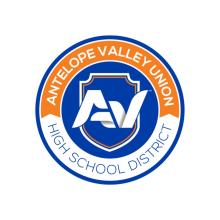
Joplin, Missouri has announced a new broadband public-private partnership (PPP) with ALLO Fiber that should help boost competition and lower rates across the city of 52,000. The partnership poses a particular challenge to regional cable giant CableOne, which currently enjoys a monopoly over broadband access across a whopping 83 percent of the city.
Outside of a $5 million city contribution to harden key city infrastructure, the network will be entirely built, funded, owned and operated by ALLO.
The origins of the project extend back to 2019, when the city first began exploring efforts to modernize Joplin infrastructure under a “smart city” initiative. By 2021 the city had hired Finley Engineering and CCG Consulting to conduct a feasibility study exploring the technical and financial details of a city-owned fiber network.
Fed up by expensive and substandard broadband access and buoyed by public support, in 2022 the city issued a request for proposal (RFP) for a partner that would help build such a network. The city received nine responses to the RFP. Last month, the Joplin City Council approved an ordinance by a vote of 8-1 selecting ALLO as the city’s primary partner.

“ALLO really stood out because they were coming to our market without asking us for any assistance,” Troy Bolander, Joplin’s head of Planning, Development & Neighborhood Services, recently told Fierce Network.
The city’s frustration with private sector broadband access extends back decades. Broadband access in Joplin is primarily dominated by CableOne (Sparklight), peppered with slow DSL-grade access by AT&T. As in many parts of the U.S., this monopoly and duopoly access results in spotty coverage, slow speeds, high prices, and substandard customer service.
CableOne has been particularly active when it comes to attempts to curtail competition in Louisiana. In 2022 a leaked company email revealed company executives believed that fighting popular, community-owned broadband networks was one of CableOne’s "most important tasks," and had actively worked to undermine deployments to low-income parts of the state.
Elaborating on why the partnership is a win for the city, Bolander added:
“I get frustrated when I talk about this because I felt like Joplin's being left out. We're small where we don't have a lot of players in this area, so there's no competition.”
ALLO promises to deliver speeds up to 10 Gbps to every city address. The company did not respond to a request for comment seeking additional information on the full cost of network construction and how long it will take to build-out citywide.
ALLO’s prices can vary by state and city, but in several regions, like Yuma, Arizona or Brighton, Colorado, ALLO offers three tiers of fiber service: 500 megabit per second (Mbps) for $80 a month, symmetrical 1 gigabit per second (Gbps) for $108 a month, and symmetrical 2.3 Gbps for $136 a month.
That’s a significant competitive challenge over CableOne, whose offerings aren’t symmetrical, aren’t as fast, and are often significantly more expensive.
Historically, cable companies go out of their way to avoid competing in one another's territories; keen to enjoy muted competition and the higher retail prices that result. But occasionally, cable competitors will overbuild into one another’s territories if provided the proper incentives.
Joplin’s new partnership isn’t just an opportunity to shore up the city’s lagging broadband competition, it provides an opportunity to harden and modernize city infrastructure.

Hard lessons were learned by the city in 2011 after a devastating EF-5 tornado killed 161 locals, injured another 1,000 and demolished more than 8,000 buildings, including a major hospital and other critical facilities.
The disaster also knocked all city emergency communications offline.
As such, a major component of the city’s partnership with ALLO involves paying $5 million to the company to help harden the city's infrastructure, which includes burying a new fiber backbone, building a backup central office, and extending fiber connections to key anchor institutions.
As ILSR has previously explored, PPPs may give munis an easier, lower cost alternative to direct construction and ownership, but it may also leave them with less control over network trajectory, coverage, and user costs over time.
That seems to have been on the mind of City Councilman Mark Farnham, the one dissenting vote against the city’s proposal. Farnham says he dissented specifically because he felt the Joplin network should be owned and operated by the city as a utility; a popular approach in cities from Chattanooga, Tennessee to Longmont, Colorado.
“I know that there are many technical issues,” Farnham said. “There are pros and cons. It's complicated. And Joplin may not have the ability to do that right at this time, but I do believe that this particular utility, all aspects of it, should be owned and operated by Joplin.”
Inline image of downtown Joplin courtesy of Paul Sableman, CC BY 2.0 DEED Attribution 2.0 Generic
Inline image of tornado clean up and recovery courtesy of Wikimedia Commons, CC BY 2.0 DEED Attribution 2.0 Generic







